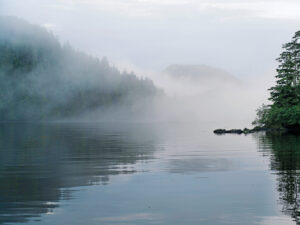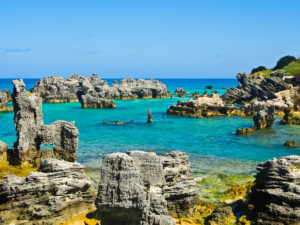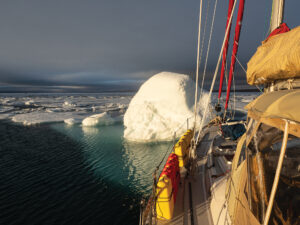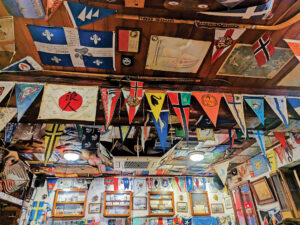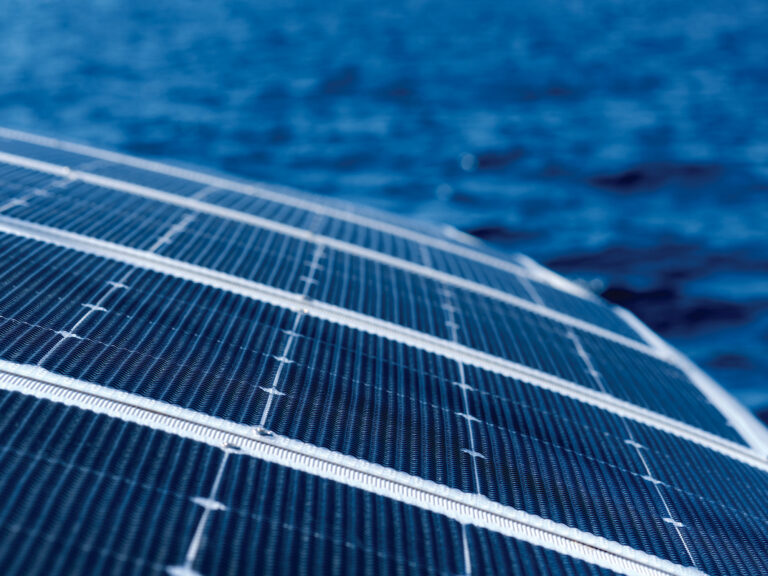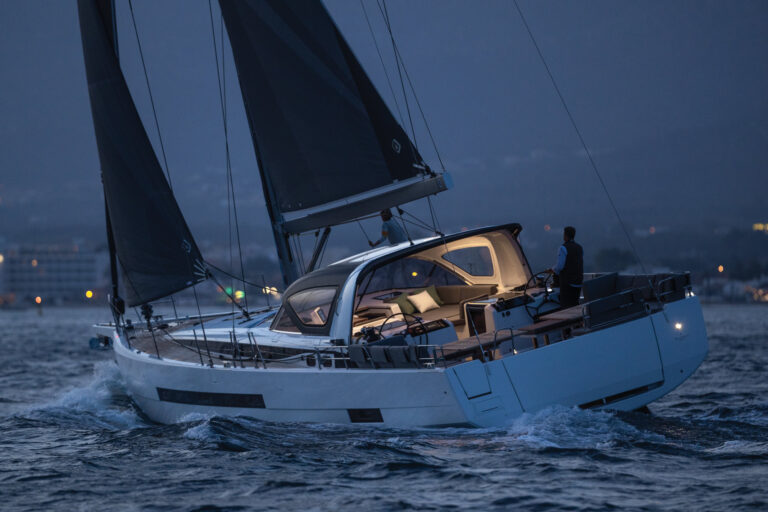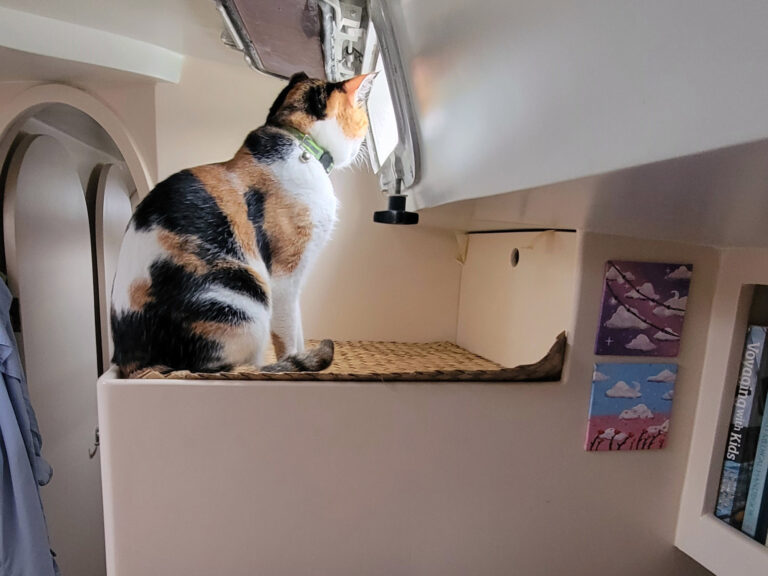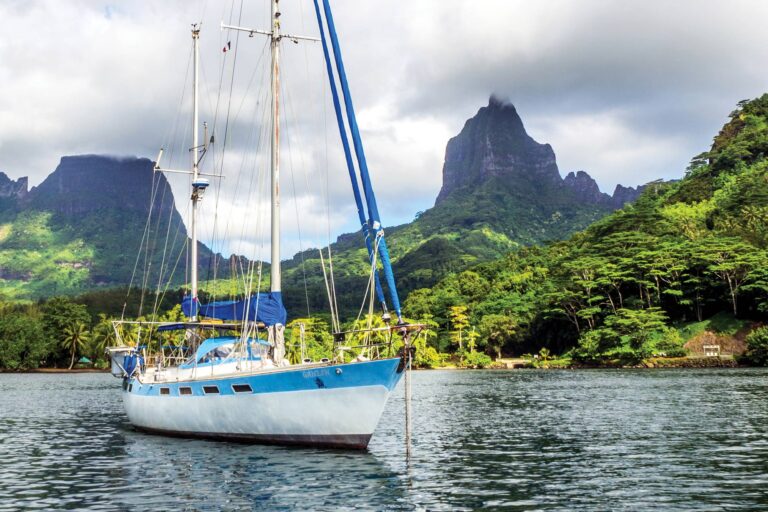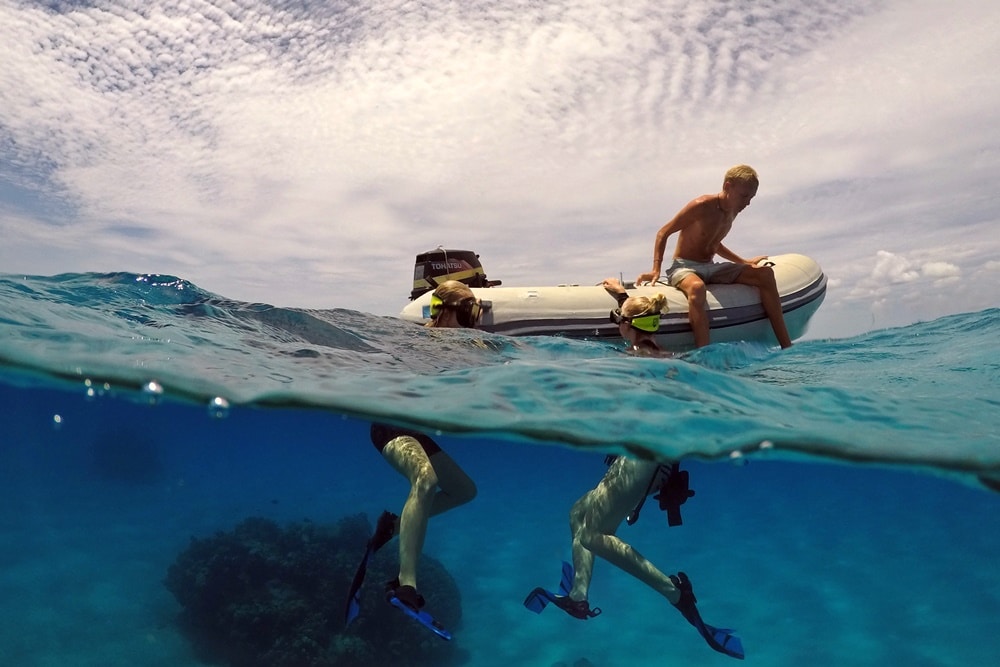
Dinghies are analogous to cars for cruisers, which is perhaps why I stand in the cockpit with the faintest touch of trepidation and watch as our teenagers disappear around the curve of a palm-fringed island. They return later grinning with adventures found… stories from their snorkeling jaunt of caverns, coral, and glowering barracuda.
If a cruising boat is the magic carpet to faraway travels, dinghies are the critical last step to engaging in those places and realizing their promise. It’s all well enough to get there, but then you must get ashore (or out to the motu, or to that faraway reef, or to the village around the point) and get around. There are tradeoffs in different types and approaches. People generally like what they have (fortunately!).
We’re on our third dinghy and third outboard as cruisers. All three are rigid-hulled inflatable boats, or RIBs. Bundled with Totem, the 10-foot Avon gave nearly 19 good years before the threadbare Hypalon wore too thin. The Highfield we were able to buy when it gave up in Thailand was a little small for us (2.9m or 9.5 feet) and had a weirdly wet ride due to draggy tubes. We replaced that with a 3.1m AB about three years ago; it’s has been awesome, used mostly with our 18hp Tohatsu (newly with a 15hp Yamaha).
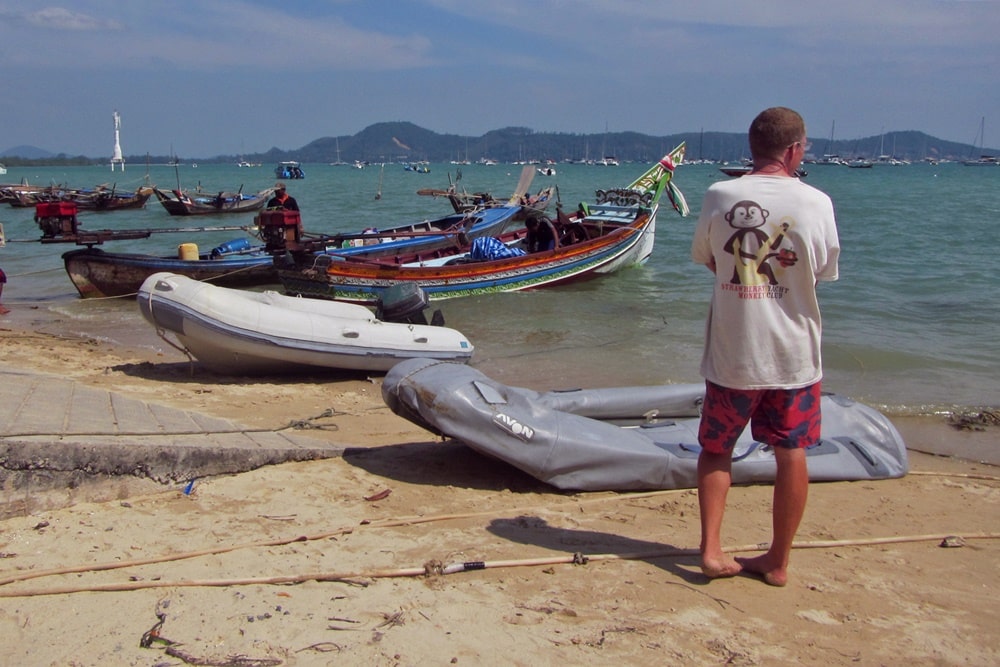
Here’s what I like about our current setup:
- Easily gets on a plane with the 15 and 18hp outboards we’ve paired with it
- The bow locker, the bow locker, and the bow locker. It provides a step, secure storage, and keeps the heavy fuel tank forward. This is also a nice safety feature, because the fuel hose runs between the double floors, which means it’s less likely to get squashed, and both hose and tank are protected from UV damage.
- The double floor provides a comfortable flat interior and helps keep things dry (bonus: strong. But…adds weight)
- Aluminum hull (lighter! but harder to patch)
- Hypalon tubes (preferred to PVC for durability)
- Robust lifting points and secure, comfortable handles
I spotted my dream dinghy combination on the bow of a boat we met in Puteri Harbor, Malaysia: Nested together were a RIB and a sailing dinghy. But given the choice between hard/rowing friendly and planing RIB, we come down solidly in the camp best described by my friend Pam Wall during our Cruising Women seminars: “bigger is better and faster is more fun!” Our current anchorage is just one example of why; it would be physically impossible to get back to where Totem is located during the typically blustery afternoons. It’s a good 15 minutes from ship to shore on a plane (going about 20 mph).
What’s out there in the cruising community? In general, RIBs dominate. It’s true to a lesser extent with coastal cruisers. At our anchorage here in Mexico, there are a handful of kayaks, inflatables and some hard dinghies. But in distant anchorages and on wider-ranging boats, the tenders are overwhelmingly RIBs. Of course, state a rule and the exceptions commence!
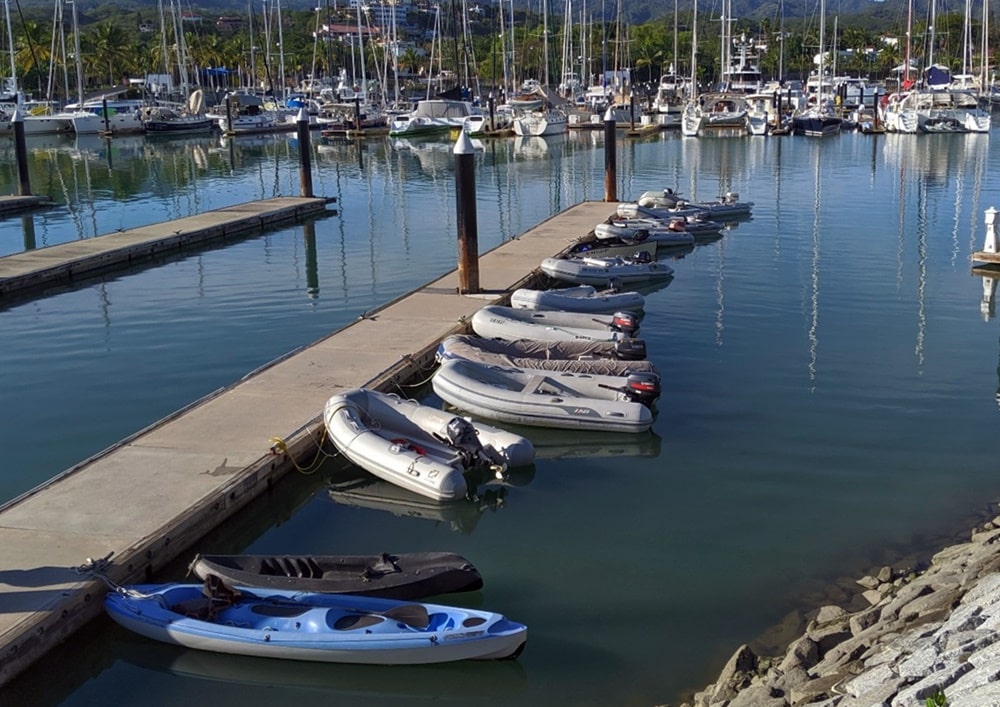
My friend Jan is anchored in an atoll in the Tuamotus right now. She’s been cruising for more than 20 years, from the U.S., to the Med, the Caribbean and currently in the South Pacific. She and her husband, Doug, love their rowing dinghy.
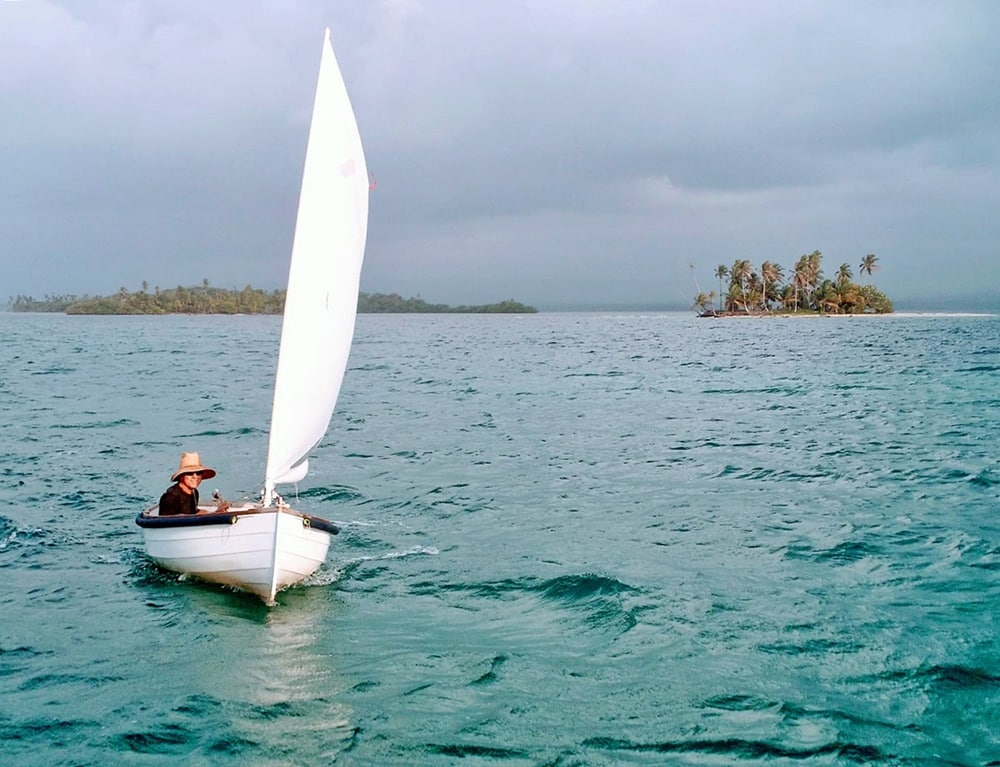
Aside from having a ship-to-shore vehicle, she rows for exercise, and Doug regularly employs a sailing kit for tooling around an anchorage, or beyond (he’s talking about tacking upwind 6 nm to the “nearby” village). Made from plans they found online that set them back less than $20, the dink sits nicely on the bow of their Corbin 39, Hanna.
RELATED: How to Choose an Inflatable Dinghy
Ben & Teresa Carey carry a Portland Pudgy as tender to their Norseman 447, Rocinante, but she came with what Ben refers to as a “deflatable.” It got them around in the Caribbean, but was UV damaged and leaky. They were happy to replace it with the robust Pudgy. “Tender” seems like the wrong word for these tough little boats. I like their reference to Pudgys as the F150 of dinghies! “Maybe she’s not the best rowing dinghy, or the best sailing dinghy, but she is multi-purpose and functional.” Exceptionally multi-purpose, considering a kit can be added to provide for use as a life raft.
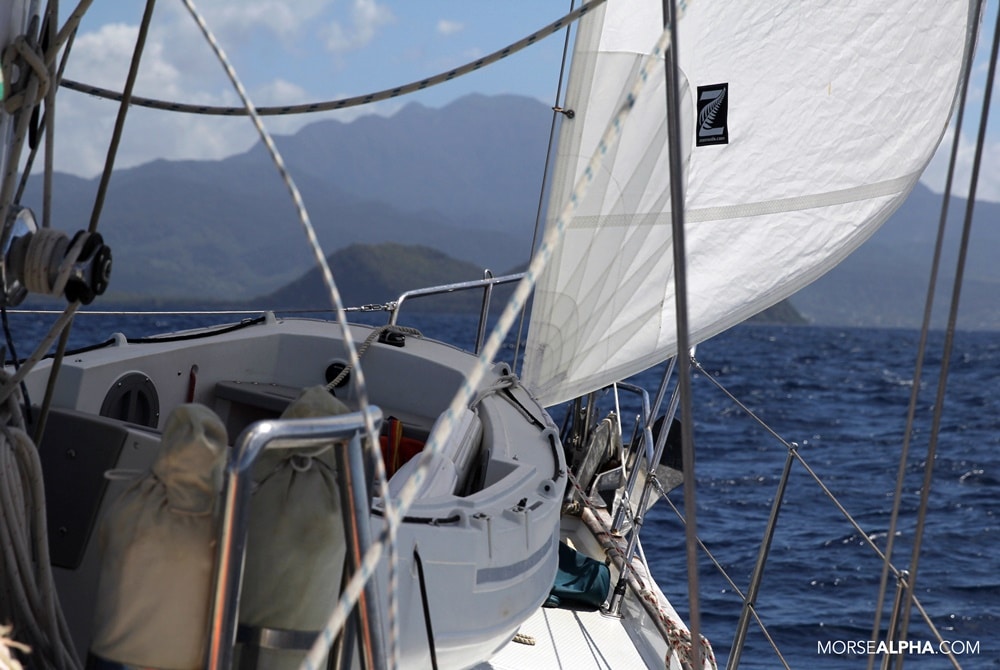
With most boats tending away from the choices made by Hanna and Rocinante‘s crews—is there a voice missing? Jan shared more of her story, and it’s instructive.
“I’ve chosen to use a rowing dinghy almost exclusively for as long as I’ve owned a boat, over 25 years. For a couple of years, as a singlehander, I even owned two rowing dinghies! Once, a kind couple insisted on giving me their outboard when they upsized. I quietly regifted it as soon as I’d moved on to a different cruising area. My husband made the same choice to row, long before we met. We have an inflatable, and carry two outboards, but we only use them when we have guests, so they have their own transportation if they wish. I like rowing for many of the same reasons we have a sailboat rather than a motorboat. I feel closer to nature. It’s a gentler way of being in the world. It means less maintenance and less pollution: sound, smell, and schmutz. While we are not absolute purists in our cruising lifestyle, we do love the self-sufficiency of our dinghy in so many ways. No searching/waiting for parts or planning stops based on fuel availability.
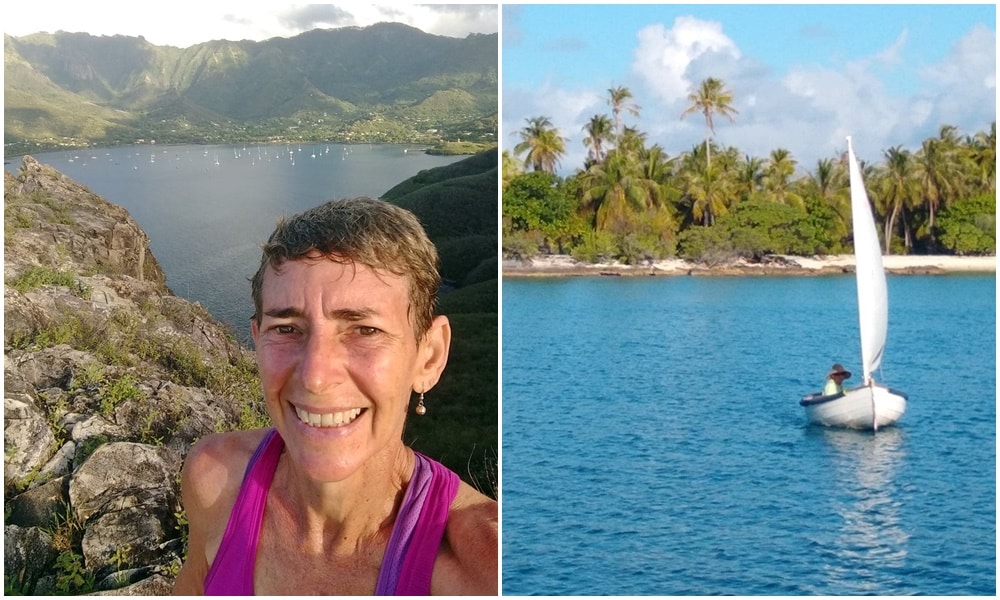
“We’re still using the same pair of oars Doug made for me as a wedding present almost 23 years ago. I can hoist her on deck and lash her down on my own, in about 10 minutes. Rowing keeps us a bit more active, and our Dancing Dolphin is a great conversation starter at any dinghy dock. She is my friend and my freedom. When we were building her, some neighbors kept asking, ‘Well what are you going to do with it when you’re finished?’ They were incredulous that one could actively cruise with a plywood dinghy, but here we are 5+ years and 7,000 miles later, and we wouldn’t have it any other way!”
Is one kind of dinghy a better choice than another in terms of risk for theft? Where theft is tied to financial desperation (hotspots around the coconut-milk run) as opposed to joy riders (we experienced this in Australia), dinghy type matters only as far as the kind of outboard that’s attached to it. Stolen dinghies are often found later, adrift or in mangroves, outboard missing… the real objective.
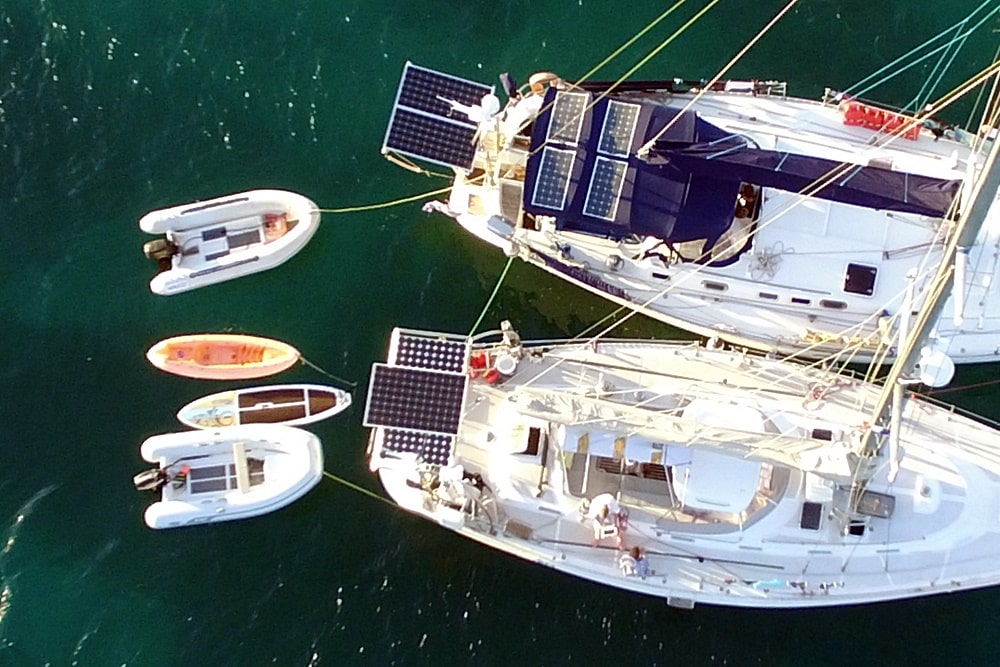
In higher risk ports, it helps to live by the mantra of “lift it – lock it – or lose it.” Davits on our stern make it easy to hoist overnight and splash in the morning. Without davits, a halyard clipped to a harness on the dinghy can lift and hang it on the boat’s hip. Be cautious, though, as the angle can chafe the halyard at the sheave (we found out the hard way). In either case, depending on where you are, it may still be prudent to have a stout cable that locks it to the boat, and a bar lock that fits over outboard clamp handles. RIBs tend to have bigger outboards; that makes them bigger targets for theft (nobody wants Torqueedos or the snail-to-bunny speed two-horses), but it’s not about the boat.
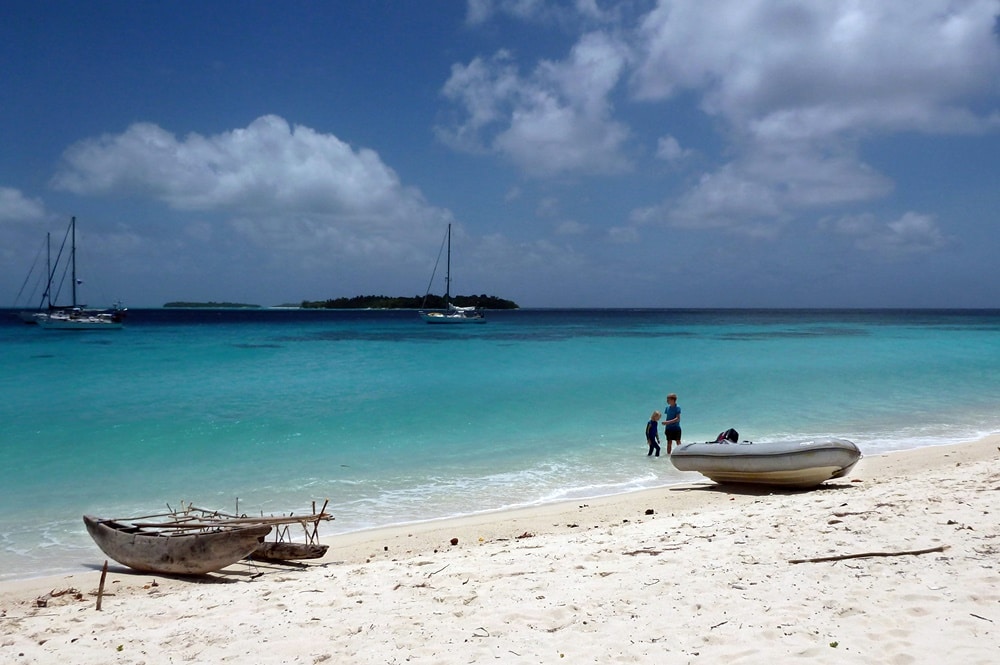
The right tender is not about what’s best at all. That doesn’t unilaterally exist. Instead, what’s important is to match the mode of transportation to your cruising grounds and style. There are a range of other dinghy types, from the home-built to the Porta-Bote, the classic aluminum skiff or Walker Bays. For our family, prioritizing the ability to travel distances with speed while carrying our full load guided our choice. We want to get from a quieter anchorage around the point into town, keep the laundry or groceries dry in a chop, or reach that distant reef.
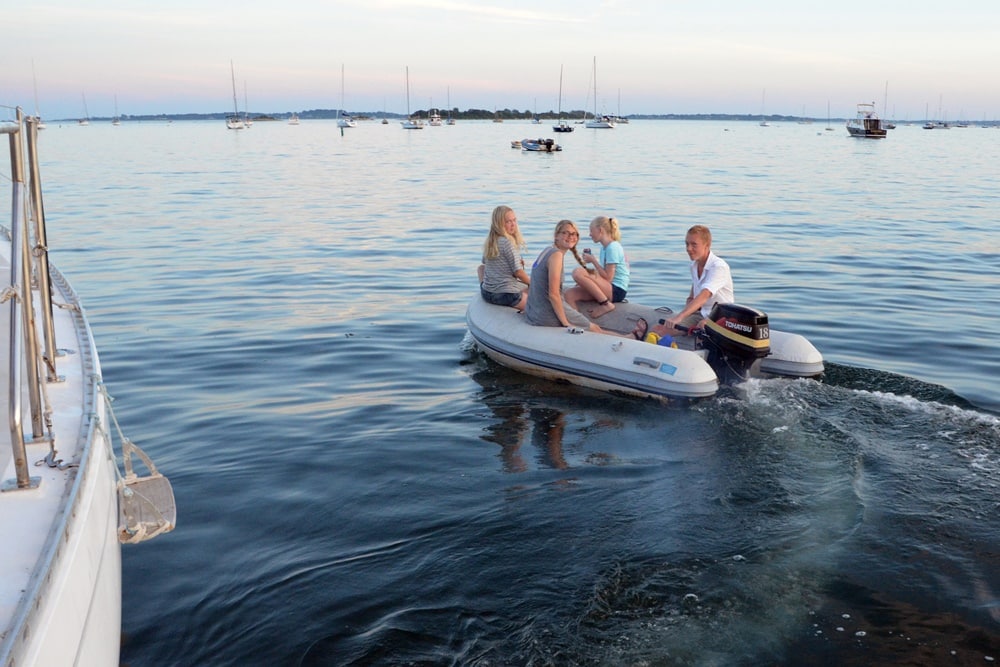
It might be a utilitarian tool, but I am kind of fond of our tender! It’s vital cruising gear that features in great memories: from watching our teens set off on adventures, sunset dinghy rafts, or drifting with friends across a Maldivian atoll, telling stories while the sun sinks into the horizon.

